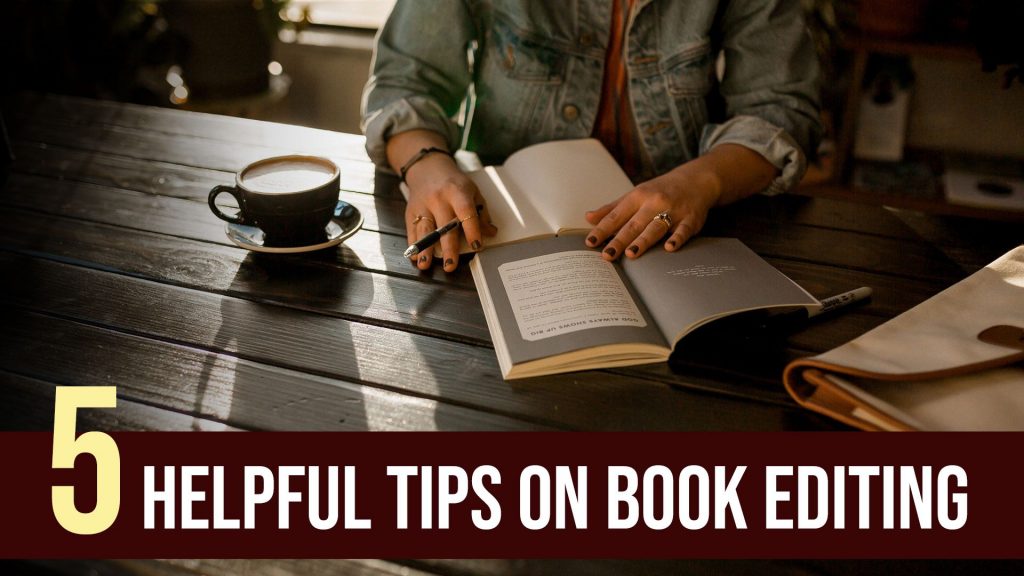5 Helpful Tips of Editing a Book
There is no better feeling than being able to finish the first draft of your book. It is when a writer can breathe a sigh of relief. Yes, it is quite an accomplishment. However, the process does not stop there. As enjoyable and exciting it is to write your own story, the process can take longer than you think it is. What could be the next step for you to take? Do you get to have it published directly? The answer is no. Just like all your favorite books, yours should still undergo extensive editing. If you want it published, you better level up its quality by making an effort to edit it. A good edit always benefits any manuscript. It is the only means for a good story to become great.
Hiring a professional editor is the best option you can take for a handful of reasons. These professionals can perfect your raw manuscript, refining it, and making it free from all errors. Greg Van Arsdale is someones you should connect with. He is an adept professional who offers editing services to talented authors like you. He has gained extensive literary training over the past few years, which only means he’ll return your manuscript ready for publishing.
There is no doubt that editing is something that you should be serious about. However, before handing over your manuscript to someone else, you should make sure that you self-edit it first. This will allow yourself to identify some errors and helps you practice self-editing for your own work in the future. Below are some tips and tricks to better your manuscript:
Read it Over
If you want to identify errors, the first thing you should do is keep reading your manuscript all over. This way, you are sure that you have not missed an error. You should not do this right after you’ve finished writing the whole thing, though. It would be best if you gave it some time. Give it at least a day or two; until then, you are not too preoccupied with the hours of writing. You want to freshen up those brain cells to be able to identify the tiniest errors your document has. This does not only apply to book writing. It applies to all types of writing.
Eliminate Unnecessary Words
For your book to be easily comprehended by your readers, you need to make sure you are using the right and concise words. This will do all the good things to your manuscript. Eliminating words means there will be no miscommunication between you and the readers and definitely denote clear meaning. The first thing you want to do is make sure that there are no highfaluting words included in the whole document. You need to consider your audience’s needs by making sure that they directly understand a sentence with just one read.
Trim Down Extra Words
Having a lot of words in a sentence does not mean that it sounds a lot better. Hence, you want to use short and concise sentences in your book for it to have better content. This can become the most agonizing part of the editing process, yet the most useful part. In the long run, this could be your favorite thing to do as you will see your content slowly getting higher quality. This will clear our clutter in your writing, making your readers’ job quick and easy.
Get Rid of Redundancies
This tip is somehow related to the previous tip and will also have the same effect on the readers. Getting rid of redundant phrases and sentences will help retain the true essence of the whole content. One way you can do is to replace redundant adjectives. Using a lot of adjectives will only make your sentences wordy. Good readability should not have wordiness. It can be difficult to see redundant in your own manuscript. Leaving it to your professional editor is fine.
Run a Spelling Check
Sometimes, writing with passion can carry you away from the world. This might leave to miss some spelling errors. Fret not! There are a lot of sites and software that can help you with this. You can also run it while you are writing the document. This way, you will be able to spot as you go through the process.
Overall, the need for you to edit your manuscript is crucial. Thus, if you finish a draft, it should be the next thing you have to consider doing. When you are done with self-editing, remember to send it to a reliable, professional editor to have a publishing-ready book. Greg Van Arsdale’s art of editing in fiction and nonfiction books is something that every author should look up to.

